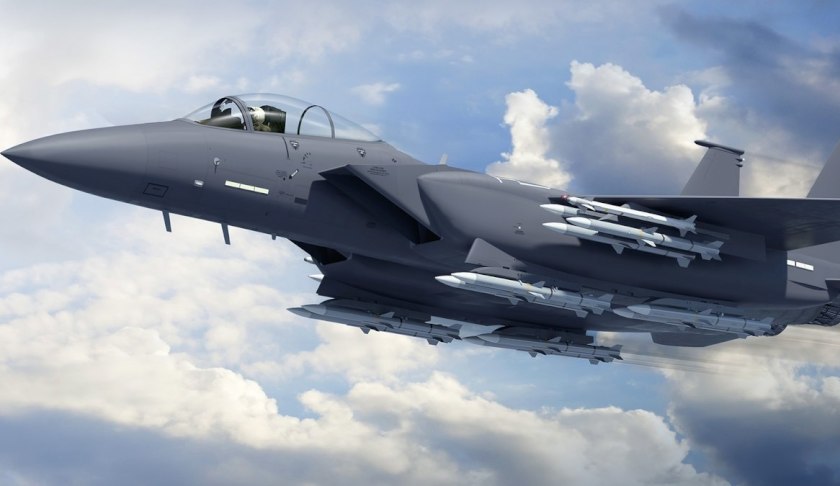The Pentagon has announced plans for a US$1.2 billion purchase of 12 upgraded Boeing F-15X fighter aircraft as part of the 2020FY budget request to support the US Air Force’s fleet of legacy and fifth-generation fighters.
To continue reading the rest of this article, please log in.
Create free account to get unlimited news articles and more!
As part of the planned recapitalisation and modernisation program of the US Air Force's (USAF) legacy fighter fleet and to supplement the growing fleet of fifth-generation F-22 and F-35 series aircraft, the Pentagon has announced the planned purchase of 12 advanced Boeing F-15X aircraft.
If approved by the Pentagon and the USAF, it would mark the first F-15 purchase by the service since 2001 when it procured additional F-15E Strike Eagle variants.
The F-15X was developed following an Air Force inquiry into both Boeing and Lockheed Martin regarding the introduction of a new air combat platform that was capable of "seamlessly plug[ing] into their existing air combat infrastructure as part of better-defined high-low capability mix strategy".
Developed as an evolution of the 45-year-old F-15 design, the F-15X provides a number of key capability and technology improvements over the legacy, fourth-generation F-15 platform, including:
- Flat-panel glass cockpits supporting fly-by-wire controls;
- Digital Joint Helmet Mounted Cueing System II helmet mounted display (HMD);
- Revised internal wing structure;
- Upgraded APG-82 active electronically scanned array (AESA) radar systems;
- Low-profile head-up display systems;
- Upgraded radio and satellite communications;
- The Eagle Passive Active Warning Survivability System (EPAWSS) electronic warfare and electronic surveillance suite; and
- Legion pod-mounted infrared search and track (ISRT) system.
These additions, particularly the enhanced wing structure enable the integration of Boeing's new AMBER missile carrying racks, enabling the F-15X to carry 22 air-to-air missiles during a single sortie. Alternatively, the AMBER racks would enable the F-15X to carry eight air-to-air missiles and 28 Small Diameter Bombs (SDBs), or up to seven 2,000-pound bombs and eight air-to-air missiles.
In contrast, the legacy F-15C/D platform can carry eight air-to-air missiles currently, while the specialised F-15SA manufactured for Saudi Arabia is capable of carrying a dozen such missiles.
This weapons carrying capability enhances the USAF's air combat capability by integrating into the broader force structure, filling niche roles supporting fifth-generation, low observable platforms like the F-22 and F-35, which can leverage their key fifth-generation force multipliers, including low observability shaping and materials, high-performance air frames, sensor fusion and network-centric capabilities as part of a renewed push for 'distributed lethality'.
In particular, the large air-to-air weapons payload of the F-15X can support F-22 and F-35 platforms operating in stealth configuration, thus limiting their payloads by serving as a long-range, stand-off 'shooting solution' for battlefield commanders, leveraging the key capabilities of both platforms operating in an enhanced, yet traditional 'high-low' capability mix.
This capability model, established during the Cold War, serves as a potent force structure model for Australia as the nation continues to integrate its own fleet of fifth-generation, F-35A Joint Strike Fighters while also operating fourth and 4.5 generation platforms like the legacy Hornet, Super Hornet and Growler platforms.

 Login
Login







